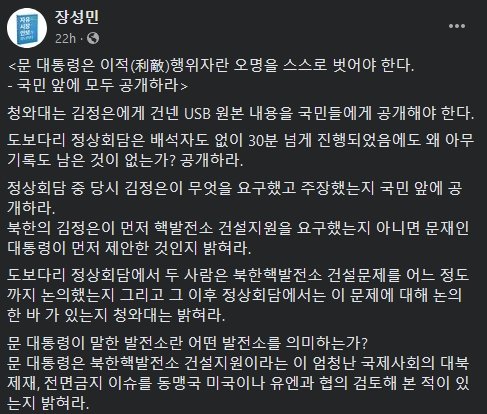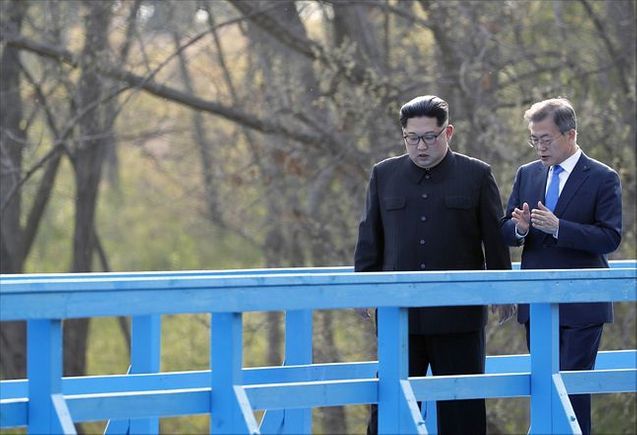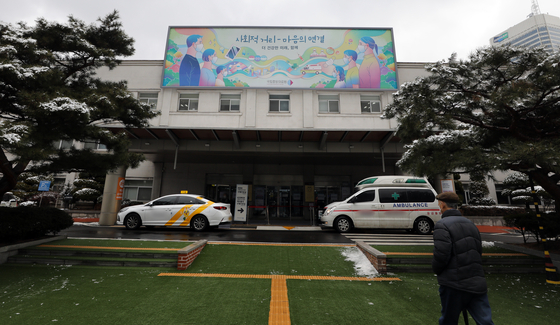버마의 Ms Suu Kyi가 이끄는 NLD(National League for Democracy)이 지난해 11월에 실시된 선거에서 다수당을 획득하여 정부를 구성할 충분한 의석을 확보 했었으나, 그선거는 부정한 방법으로 실시되였다는 이유를 들어, 군부가 받아 들이지 않아, 현재 Aung San Suu Kyi와 정치적 지도자들이 몇시간전에 체포되여 감금 상태에 있다고 한다.
지난번 선거결과를 놓고, 군부와 정부간에 긴장감이 휘몰아치고 있어왔었는데, 결국 군살 쿠테타가 일어나, 군부가 나라를 다스리게 됐으며 앞으로 최소한 1년정도는 군부의 통치가 있을것 같다.
미얀마는 현재처럼 민주주의 정부가 세워진 2011년까지는 군부가 나라를 통치 해 왔었다. 미얀마는 전에는 버마로 알려졌더 나라다.
지난 11월 선거에서 당선된 하원은 처음으로 월요일에 의원들이 국회를 열어 국사를 논할려는 준비를 하고 있었는데, 군은 의회소집을 연기한다고 발표 한 것이다. 군부는 군사령관 Min Aung Hlaing 에게 전권을 넘기고 앞으로 그의 지시를 따라 나라를 통치하게 될것으로 보인다.
미얀마는 불교 국가다. 그러나 북부의 Rohingya 부족은 머슬릴 종교를 신봉하여, 군부의 무자비한 학살이 계속되여, 살아남은 Rohingya인들은 인근나라인 방글라데시로 피신하여 살아왔었다.
2020년 유엔은 불교국인 미얀마일들에게 Rohingya들 학살하지 말고 보호하라는 명령을 내리기도 했었다. 인권 운동가였던 Aung San Suu Kyi,는 로힝야 부족을 학살했다는 유엔의 주장을 계속부인해 왔었다. 부족간의 투쟁은 앞으로 이얀마의 큰 골치거리가 될것으로 유엔은 걱정이다.
군대가 수도, Naypyitaw과 Yangon거리의 치안을 맡고 있으며, 또한 인터넷 연결과 전화통화는, 미얀마의 주요도시에서 완전 차단됐으며, 국영방송 MRTV 은 기술상의 문제로 방송이 중단됐다고 했다.
BBC의 동남아시아 통신원 Jonathan Head씨는 설명하기를 미얀마 헌법에 따르면 군부는 합법적으로 비상사태를 선포할수 있으나, Ms Suu Kyi같은 정치적 지도자들을 감금하는것은 매우 위험한 행동으로 국민들의 심한 저항에 직면할수 있다라고 통신원은 설명하고 있다.
NLD당 대변인 Myo Nyunt씨는 로이타 통신과의 전화통화에서 Ms Suu Kyi와 대통령 Win Myint와 다른 정치적 지도자들이 오늘 아침 현재 감금 상태에 있음을 확인해 주었다.
"나는 우리 국민들이 그들의 지시에 응하지 말것을 알려주고 싶으며, 군부가 법에 따라 행동해 줄것을 원한다"라고 설명하면서, 그자신도 곧 감금될것이라고 설명했다. 군인들은 고위급 각료들 가택을 수사하고, 감금시켰다고, 가족들이 걱정속에서 상황 설명을 해주고 있다.
국제적으로 Ms Suu Kyi를 지지했던 많은 사람들은, 그녀가 군인들이 저지른 강간, 살인 그리고 대량양민 학살을 규탄하지 않았거나 최소한 그러한 무자비한 행동을 알고 있으면서도, 비난하지 않았다고 성토를 해 왔었다.
또 다른 소수의 사람들은 그녀는 융통성있는 정치인으로, 소수 부족간의 복잡한 역사를 이해 하면서, 여러 소수민족들을 조화있게 통치 할려고 노력한 정치인이라고 옹호한다. 그러나 2019년 헤이그에서 유엔소속의 국제 사법재판소의 재판에서, 군부의 무자비한 행동을 두둔하는 그녀를 보면서, 그동안 그녀가 국제적으로 인권 운동가로 얻어왔던 명성은 전연 볼수가 없는, 완전한 독재자로 변한점을 보여주었었다고 비난하고 있다.
그러나 미얀마 국내에서 Ms Suu Kyi는 "정직한 숙녀"로 국민들 사이에서, 특히 불교도가 대부분인 미얀마 사람들로 부터 절대적인 인기를 즐기면서, 부족에 대한 살인, 또는 축출를 포함한 야비한 행동에 전연 안타까움을 표하지 않는 악녀로 일관해 왔었다.
이슬픈 뉴스를 보면서, 한국의 현 문재인과 그패거리들의 무자비한 좌파성향 정치를 펴기위해, 반대편에 있는 정치인들, 지식인들 그리고 국민들의 반정부 정책 시위를 무자비하게 철퇴를 가하는것도 모자라, "공수처"라는, 반대편 정치꾼들을 감옥에 처넣기위한 법을 제정하여 실시하기 시작한 이후로 수많은 무고한 사람들이 햇볕을 보지 못하게 될것이 염려된다.
야당 또는 야인으로 있을때의 인권 운동가들이 정권을 잡게 되면, 태도가 180도 바뀌어, 독재자로 변한다는 증거를, Aung San Suu Kyi 와 문재인을 보면서 새삼 절감한다.
Myanmar's military has confirmed it has taken control of the country after Aung San Suu Kyi and other political leaders were arrested in the early hours.
The coup comes after tensions rose between the civilian government and the military following a disputed election.
Hours after the arrests, the military appeared on television to confirm it was taking power for the next year.
Myanmar, also known as Burma, was ruled by the military until democratic reforms began in 2011.
In November's election, Ms Suu Kyi's National League for Democracy (NLD) won enough seats to form a government. The army says the vote was fraudulent.
The newly-elected lower house of parliament was due to convene for the first time on Monday but the military was calling for a postponement.
The military said it was handing power to commander-in-chief Min Aung Hlaing.
Soldiers are on the streets of the capital, Naypyitaw, and the main city, Yangon.
Mobile internet data connections and some phone services have been disrupted in major cities, while the state broadcaster MRTV says it is having technical issues and is off air.
The BBC's South East Asia correspondent, Jonathan Head, says that under the constitution the military has significant powers to declare a state of emergency, but detaining political leaders like Ms Suu Kyi is a provocative and very risky move, one which may well be strongly opposed, our correspondent says.
NLD spokesman Myo Nyunt told the Reuters news agency by phone that Ms Suu Kyi, President Win Myint and other leaders had been "taken" in the early hours of the morning.
"I want to tell our people not to respond rashly and I want them to act according to the law," he said, adding he also expected to be detained.
Soldiers also visited the homes of chief ministers in several regions and took them away, family members said.
What happened in the election?
The NLD won 83% of available seats in the 8 November election in what many saw as a referendum on Ms Suu Kyi's civilian government.
It was just the second election since the end of military rule in 2011.
But the military has disputed the result, filing complaints at the Supreme Court against the president and the chair of the electoral commission.
Fears of a coup rose after the military recently threatened to "take action" over alleged fraud. The election commission has rejected the allegations.
Who is Aung San Suu Kyi?
Aung San Suu Kyi is the daughter of Myanmar's independence hero, General Aung San. He was assassinated when she was only two years old, just before Myanmar gained independence from British colonial rule in 1948.
Ms Suu Kyi was once seen as a beacon for human rights - a principled activist who gave up her freedom to challenge the ruthless army generals who ruled Myanmar for decades.
In 1991, she was awarded the Nobel Peace Prize, while still under house arrest, and hailed as "an outstanding example of the power of the powerless".
Ms Suu Kyi spent nearly 15 years in detention between 1989 and 2010.
In November 2015 she led the National League for Democracy (NLD) to a landslide victory in Myanmar's first openly contested election for 25 years.
The Myanmar constitution forbids her from becoming president because she has children who are foreign nationals. But Ms Suu Kyi, now 75, is widely seen as de facto leader.
But since becoming Myanmar's state counsellor, her leadership has been defined by the treatment of the country's mostly Muslim Rohingya minority.
In 2017 hundreds of thousands of Rohingya fled to neighbouring Bangladesh due to an army crackdown sparked by deadly attacks on police stations in Rakhine state.
Ms Suu Kyi's former international supporters accused her of doing nothing to stop rape, murder and possible genocide by refusing to condemn the still powerful military or acknowledge accounts of atrocities.
A few initially argued that she was a pragmatic politician, trying to govern a multi-ethnic country with a complex history.
But her personal defence of the army's actions at the International Court of Justice hearing in 2019 in the Hague was seen as a new turning point that obliterated what little remained of her international reputation.
At home, however, "the Lady", as Ms Suu Kyi is known, remains wildly popular among the Buddhist majority who hold little sympathy for the Rohingya.












![윤석열 검찰총장(왼쪽)과 이성윤 서울중앙지검장. [연합뉴스, 뉴스1]](https://pds.joins.com/news/component/htmlphoto_mmdata/202101/29/7a548a82-0867-4946-9a5a-d8467e52d684.jpg)
![최강욱 열린민주당 대표(당시 청와대 공직기강비서관) 측이 지난해 1월 23일 조국 전 법무부 장관 아들에 허위 인턴 확인서를 써준 혐의로 기소된 직후 "검찰권을 남용한 '기소 쿠데타'"라고 주장하면서 공개한 검찰의 출석요구서와 검찰사건사무규칙상 수사사건 수리 양식.[연합뉴스]](https://pds.joins.com/news/component/htmlphoto_mmdata/202101/29/1c7fdb78-0665-42bd-be54-8c9863bd8d45.jpg)